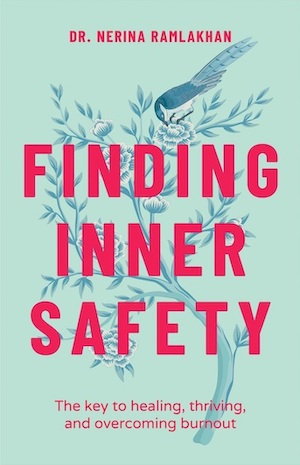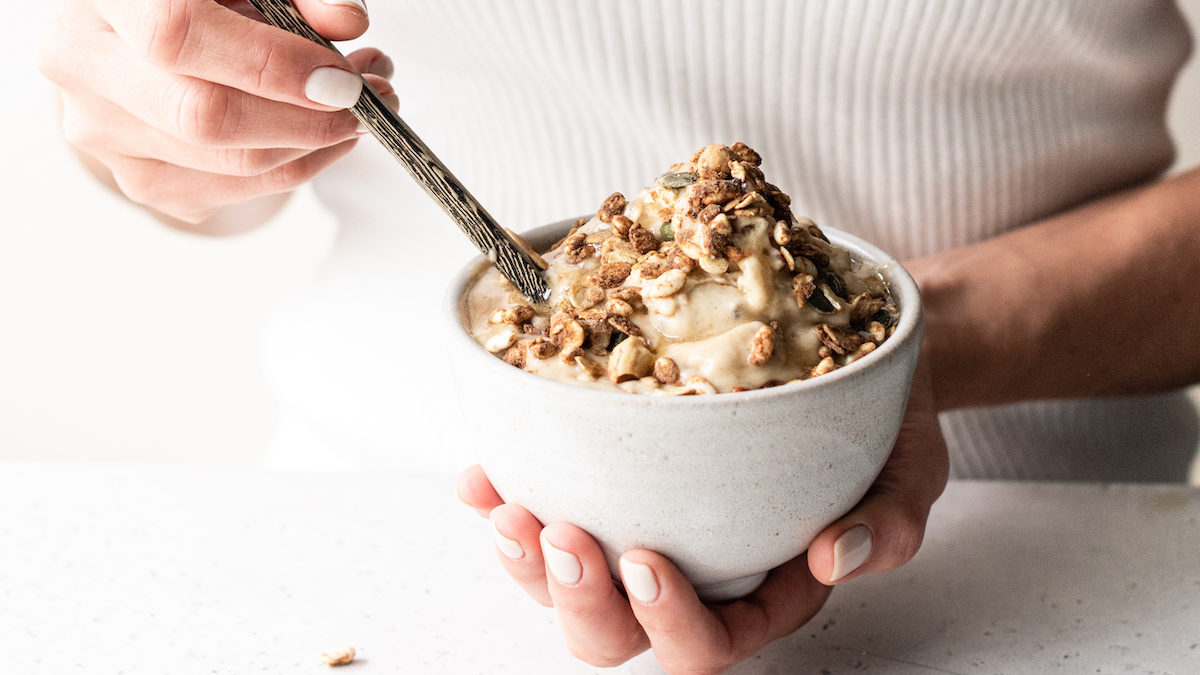How To Train Yourself To Sleep Earlier (And Better)

Has WFH life got you unable to knock off until late o’clock? Do you find yourself regularly hitting the snooze button in the morning? Perhaps it’s time to recalibrate your system. Find more time and energy in the day with these tips on how to fall asleep at a sensible time — and wake up earlier too — with physiologist, sleep therapist and author of upcoming book ‘Finding Inner Safety: The key to healing, thriving and preventing burnout’ , Dr Nerina Ramlakhan.
 A lot of our struggles in getting to sleep at a sensible time revolve around lifestyle these days, especially since the pandemic. We have access to so much distraction and information, and during the pandemic, in particular, people’s schedules have shifted. Many people aren’t having to live by the organisation of the corporate timetable and train schedules anymore so they’re working from home, getting up later, and then going to bed later. Home is our workplace now and there’s a definite issue around sleep and boundaries, which have become very blurred.
A lot of our struggles in getting to sleep at a sensible time revolve around lifestyle these days, especially since the pandemic. We have access to so much distraction and information, and during the pandemic, in particular, people’s schedules have shifted. Many people aren’t having to live by the organisation of the corporate timetable and train schedules anymore so they’re working from home, getting up later, and then going to bed later. Home is our workplace now and there’s a definite issue around sleep and boundaries, which have become very blurred.
Reset Your Post WFH Boundaries
Start setting some boundaries then, which might be as practical as the clothes you wear. When you are working at your desk, work in different clothes. Don’t sit in your pyjamas, in bed, on your laptop. And then when you’re finished working, put a cloth over the computer or put it in a cupboard. You’re physically creating a boundary to move into the next compartment of your life as opposed to everything blurring into one.
Half Nine Cut Off
In my work, I talk about the five non-negotiables, and one of those is to start getting into bed around 9:30. And you don’t have to be asleep, but be reading a book, and have your devices out of the bedroom, not watching TV in bed, not on your laptop, not on your phone. Start to transition into restfulness, and then sleep, earlier in the evening.
Eat Breakfast Within 30 Minutes Of Waking
You need to change other things as well, so this is where the other four non-negotiables come into play. Eating breakfast first thing in the morning is important because a lot of people don’t eat breakfast, or if they do eat breakfast, they eat it much later in the day.
So, I recommend that if people have got sleep problems, they start by eating breakfast within the first half-hour of getting up, and include a source of protein in there. After doing this for a week or two, people find they wake up with more energy in the mornings, which then means they get up earlier, which means that they build up more sleep drive throughout the day.

Look For Moments Of Rest Through The Day
To train yourself to sleep earlier and better you need to start understanding the cycles of rest and activity throughout the day, and the fact that ideally every 90 minutes or so, we need to do something restful. You need to go back to stopping and taking lunch breaks, for example, and not working at the desk through lunch.
Stay Away From Intermittent Fasting
I would also advise staying away from something like intermittent fasting if you have sleep issues. It may well work for some people, but it doesn’t work for anyone who’s running on adrenal overloads who might be suffering symptoms of burnout or having difficulty getting to sleep, difficulty staying asleep, and, of course, delayed sleep phasing.
Adjust Your Bedtime Reading
Even thinking about what you put into your mind before you go to bed will have an impact on how you sleep. I’m reading a novel called Shuggie Bain by Douglas Stuart at the moment and it’s quite traumatic but it’s so beautifully written, and I do want to read it so I read it during the day when I take a break. But then I have an easy, relaxing book that I’m reading in the evening in bed, and I just read a couple of pages of that and I switch off. The idea here is you ought to always tell yourself a perfect bedtime story before you go to bed. Not a horror story.
Find Meaning In Waking Up Earlier
Work out what it means for you to wake up earlier. What would that mean? What would you do with that time? How do you want to feel? Maybe you want to wake up early so you can exercise. Why do you want to exercise? Well, maybe it’s you want to have more energy? Why do you want more energy? Well, maybe it’s because you want to be a better partner, or better parent. When we can really drill down and find out why, we are more likely to do it.
Dr Nerina Ramlakhan’s latest book ‘Finding Inner Safety: The key to healing, thriving and preventing burnout’ (Wiley Press) is out 7 April 2022


















